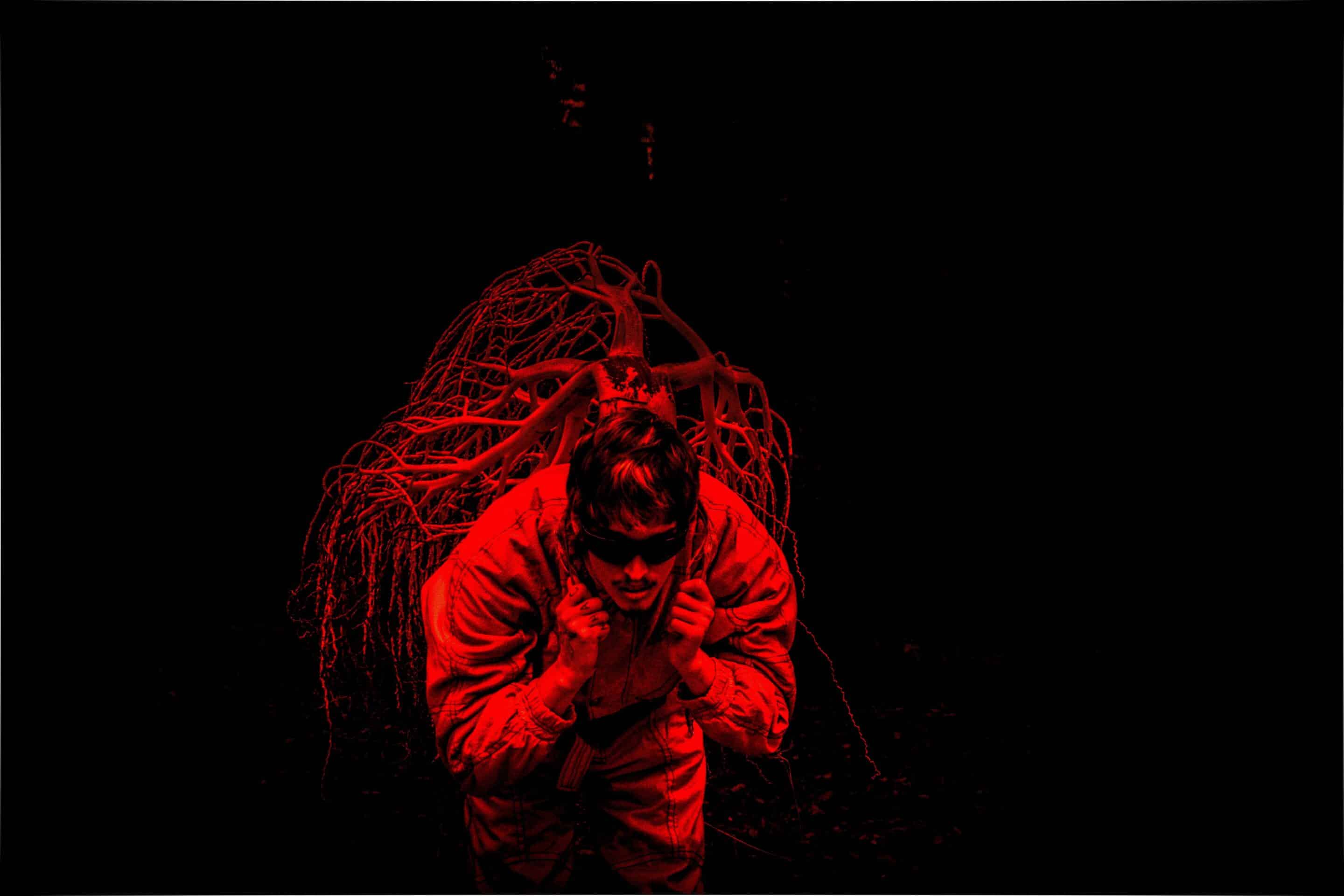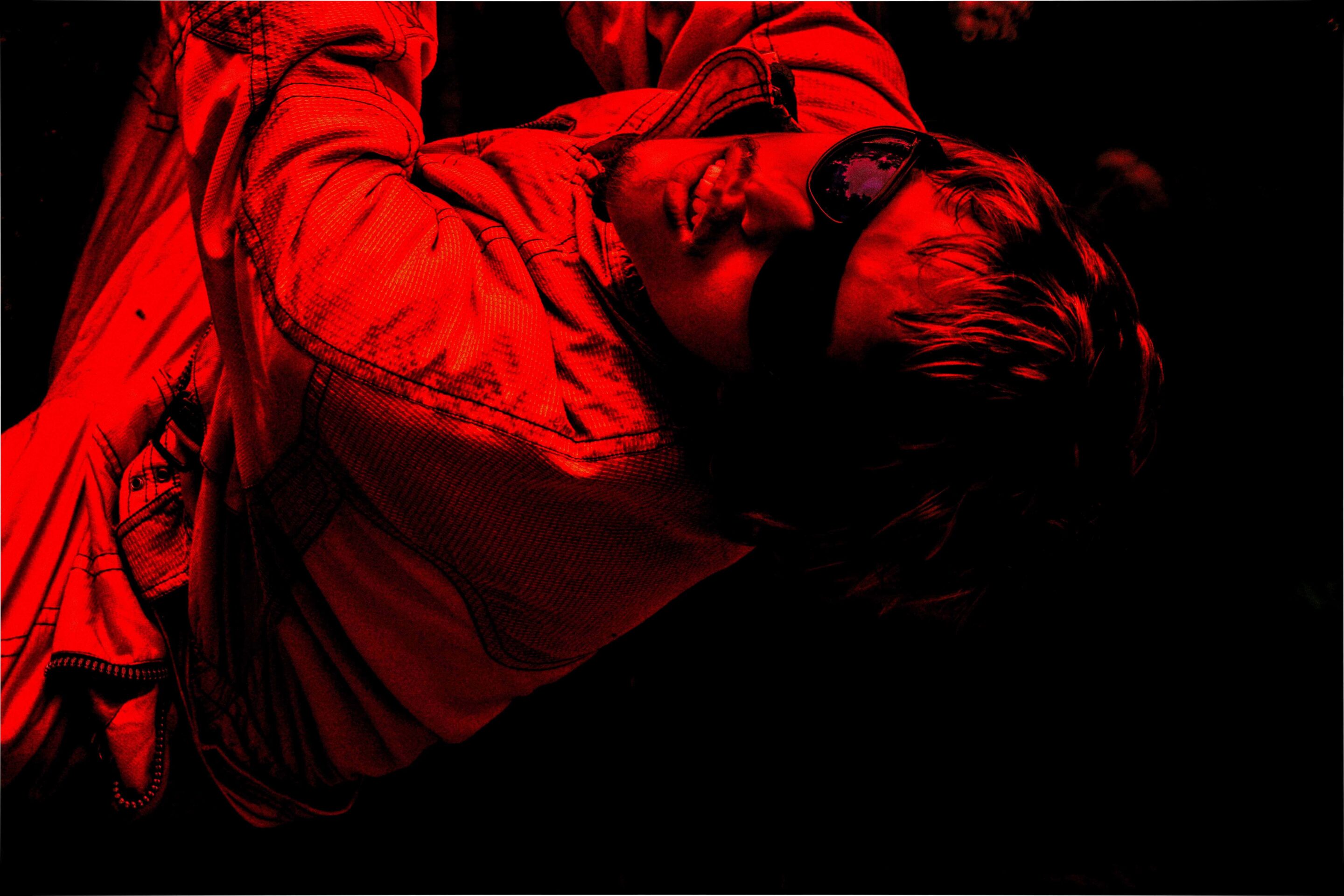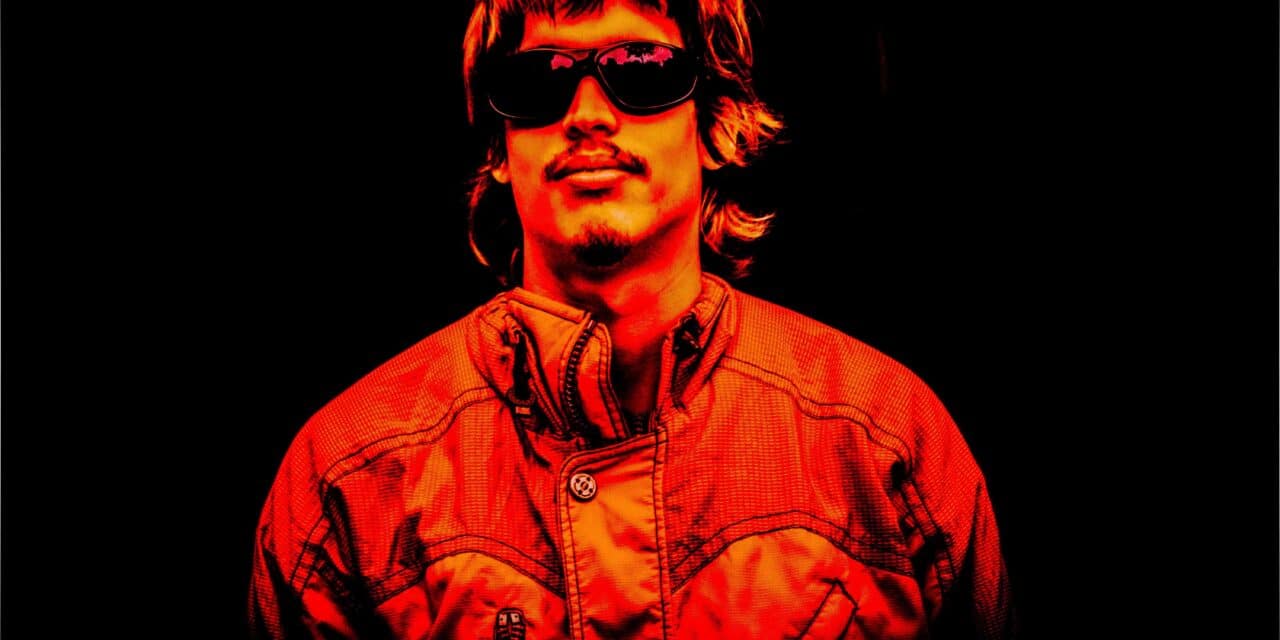Something between a soundtrack for the end of the world and echoes of an interplanetary reality—that’s how MARTEMORTE sounds, the album Brazilian artist MONCHMONCH is releasing through the Portuguese label Saliva Diva, in collaboration with Seloki Records. Recorded between Brazil and Portugal, the experimental punk artist’s work is accompanied by a comic book featuring visual interpretations of the album’s nine tracks. The release also includes a vinyl edition—with an exclusive B-side that won’t be available on streaming platforms. The artist will be touring Portugal to promote the album.
Let’s start with the end of the world. MARTEMORTE sounds like a transmission from a dying Earth—did the album come from a place of total despair, total absurdity, or some cosmic combination of the two?
Since Guardilha Espanca Tato, I’ve been studying creating music, videos and drawings from my dreams, or nightmares – these are always the best. In that state where you’re more or less awake, but still dreaming and a bit sleepy, that’s when I usually have the best time to develop this universes. That’s where MARTEMORTE came from, it has all this super-real charge, of neoliberal hell, wars and other situations that should be extreme, but which are accompanied by that comic relief that only the absurdity of a dream can provide. The place of absurdity makes the whole realistic theme of the album digestible.
This project shapeshifted from a casual EP into a full-blown concept album across two continents. What was the moment where you realized: Wait, this is bigger than I thought?
Initially, I didn’t have a grasp of the whole thing, but individually, the songs already had this super narrative tone, like City Bunda, which is a super descriptive lyric, almost an architectural project of what this collapsed city is like. Over time, I put the pieces together, like a puzzle, trying to visualize how things could come together. I’ve always been a big fan of Greek mythology, I wanted the album to have this mythological feel, and that was the cue for me to put it all together, seeing that the album had all this Jeff Bezos as a god, and we were still miserable humans, I found a direct relationship with the myth of Prometheus and pão de queijo (cheese bread). After that, it was just a matter of maintaining the satirical direction to make it palatable. Here is the absurdity that is now available to listen to everywhere.
From CITY BUNDA to VELHOS BRANCOS VELHOS CAREQUINHAS, the album oscillates between dark humor and social critique. Do you think absurdity is the only sane way to make sense of 2025?
I hope that absurdity isn’t the only way of dialoguing and building these days, we can’t live only in delirium in this life, we need peace and quiet. The great example of this is “Jeff Bezos Paga um Pão de Queijo”, which is a song full of suffering, but the comic absurdity of the chorus, of Jeff paying the listener for something as banal as a cheese bread, ends up softening the anti-capitalist message present in the song.


At some gigs, I’ve even seen people who don’t agree at all with my anti-capitalist approach sing this chorus with me. I found out the other day that one of the people at one of my gigs was a monarchist, and to hear someone with such a stance sing that their esteemed tycoon should give back what was stolen from him is priceless. The person may not have realized that he was singing an anti-capitalist song, and that’s why it’s so funny, but deep down it gives me some kind of hope, certainly much more hope than getting into a violent fight, whether live or online, which has its value too, but it seems to me that the absurdity is more effective. No wonder far-right politicians always win with their great absurdities, I’ve tried to play with the same strategy.
The absurd seems to be a way of surviving the human disaster, and also of trying to engage in dialog.
There’s something raw, unpredictable, and borderline theatrical about the punk energy in your work. Who are the ghosts—or the glitter-covered goblins—whispering in your creative ear?
The songs came before the comics, but as I’ve been saying, I’ve always composed the songs, creating these scenarios in my head, so when I invited the various comic artists to expand the dream, it was like being back inside my mental images, only much more effective, because as well as now being something real, it wasn’t just my head, it became a collective dream, almost a group telepathy with everyone involved.

It’s hard to pick a favorite, but I really like City Bunda, by Atópico, a narrative that makes reference to an old advertisement for São Paulo, unless I’m mistaken, from the military dictatorship or a little after that dark period, in which the city is presented as something wonderful, utopian. But it has that tone of lies and open disgust. It makes perfect sense conceptually with the song and the album.
You built this record across Brazil and Portugal, with shifting lineups and contributions from acts like Baleia Baleia Baleia and Conferência Inferno. Did all that instability feed the chaos—or bring structure to it?
Feeding chaos is the best way to gain structure, if you can channel the energy. The more people, the more collective the better, at least as far as my ability to organize things goes. In this case, it was very positive. I did a tour in Brazil with Baleia Baleia Baleia (PT), and they saw me playing with MONCHMONCH with my Brazilian band, and we also did a show in Brazil with the Baleia line-up playing with me. After it was over, the Baleia started playing the way the Brazilians played, and vice versa. This chaos is very good, new perspectives, getting out of our reality and seeing other visions, dreaming. It’s always worth it if your soul isn’t small.

What’s the most ridiculous (in the best way) thing that happened during the recording process? Bonus points if it involves cheese bread, comic books, or interplanetary capitalism.
In the middle of the album process, I canceled a cell phone plan. It turned out that the company, which had confirmed the cancellation to me several times, was always charging me installments and installments of money for something that had already ended a long time ago. The same day I released the album, I also started legal proceedings against the company.
If MARTEMORTE is the sound of the apocalypse, what’s next for MONCHMONCH? Post-collapse lullabies? A punk samba ballet? A full Martian disco opera?





